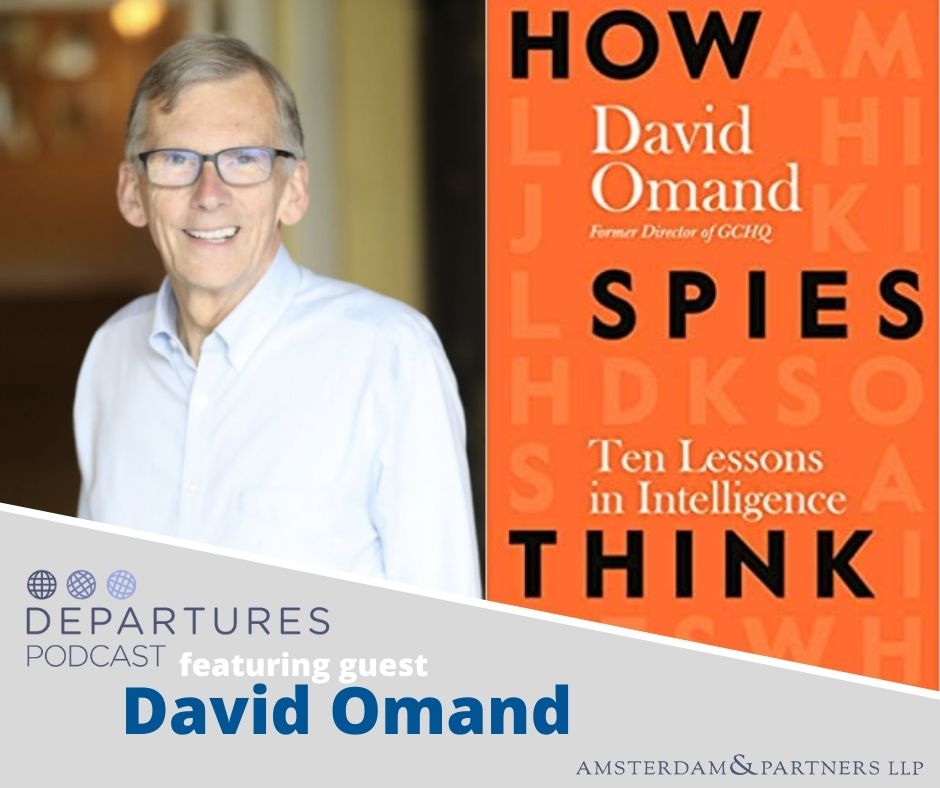Departures Podcast with David Omand

In every important decision in our lives and in our careers, we are presented with a vast array of information. The ways in which we process, analyze, and rationally make decisions not only reflects what every decisionmaker wishes to see, but also the relative weight of how we expect to achieve realistic outcomes – and often times we miscalculate and make mistakes.
This week we are proud to have on the podcast Sir David Omand, a former director of the British intelligence agency GCHQ, whose new book, “How Spies Think: Ten Lessons in Intelligence,” presents a masterclass in critical thinking.
Drawing key experiences from his distinguished career, including key briefings with Prime Ministers from Thatcher to Blair, and conflicts from the Falklands to Afghanistan, Omand shares his strategies to help people to sort fact from fiction and how to use real intelligence for everyday business decisions.
“Data is dumb, correlation is not causation. That’s why explanation is everything,” says Omand. “Although we never have complete information, if the basic data on which you’re trying to base your argument is itself flawed, then you’re in real trouble. So teaching people to assess the information they have and weigh it and see whether or not it’s sufficiently reliable is key.”
The explosion of information in the digital age, with social media offering adversaries channels of information that intersect and overlap with those of ordinary citizens, the work of intelligence agencies is more complex than ever, Omand explains. The work of surveillance isn’t just collecting fragments of information of varying levels of quality. The real achievement is the analysis and processing of that information in order to build a full picture – which is a critical thinking approach for the wider world to adopt as well.











